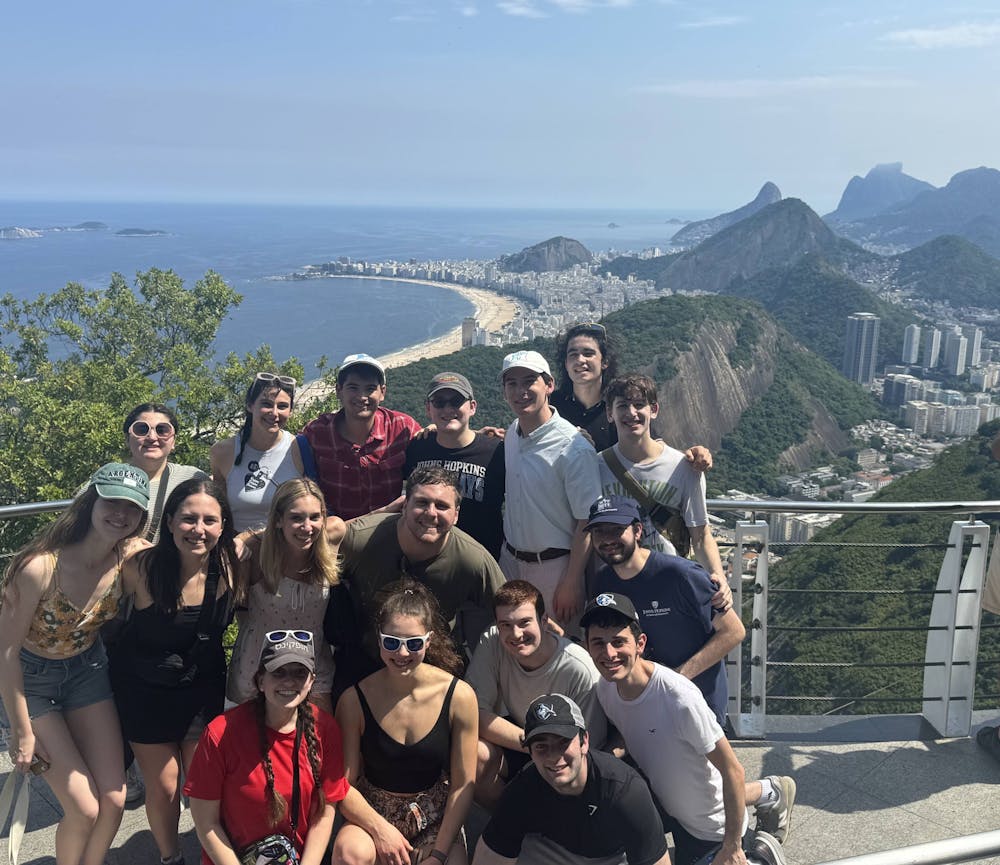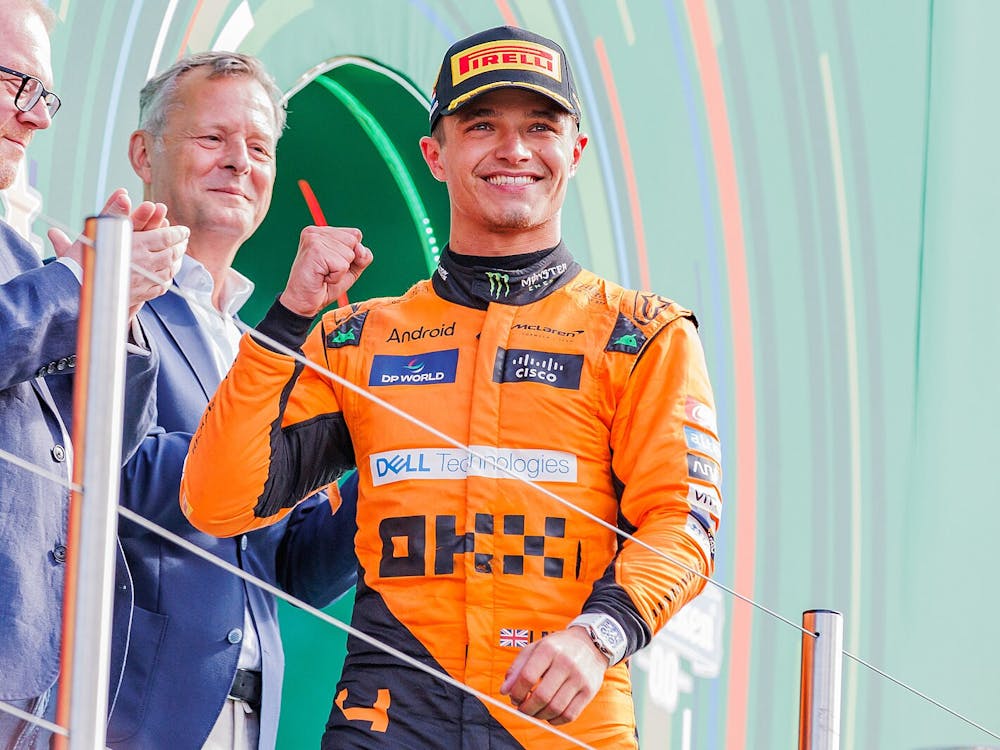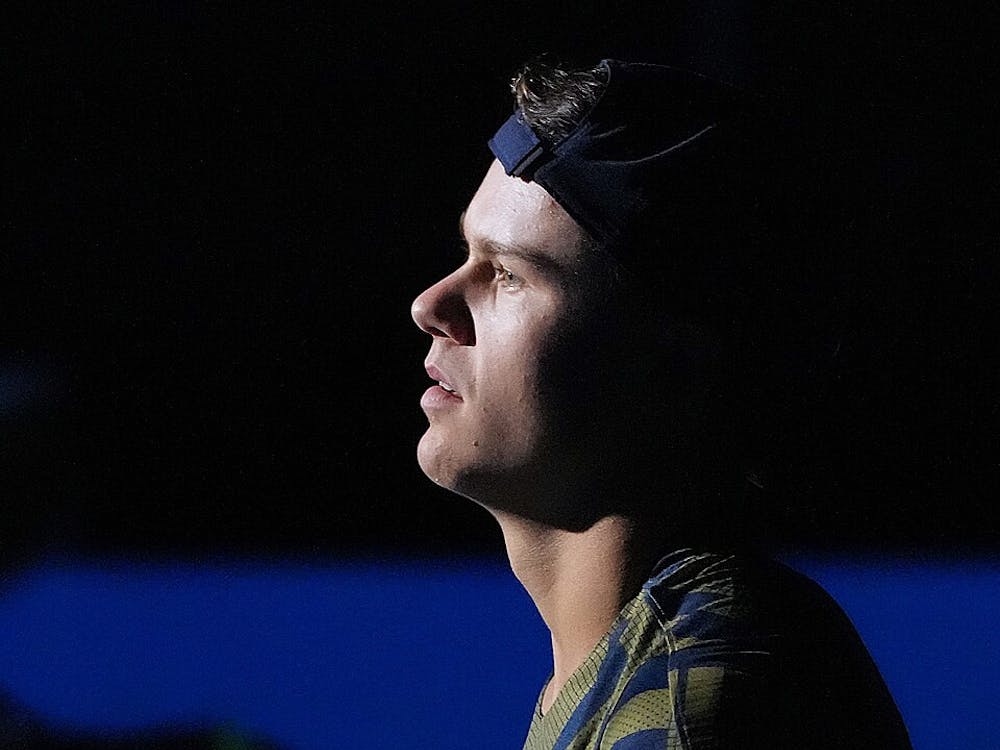As a Brazilian-American Jew, being Jewish is something that has always transcended my nationalities.
I am American, and I am Brazilian, but before either of these things, I am Jewish.
To me, being Jewish means being part of a peoplehood — a home away from home — one that goes beyond the aspects of time and borders whether you are in Israel or in the diaspora of communities around the world. It means sharing common traditions and customs like celebrating Rosh Hashanah — the Jewish New Year — by dipping apples into honey, or simply playing “Jewish geography” every time you meet a new Jewish person. As we make up only about 2% of the U.S. population and 0.2% of the global population, you’d be surprised by the number of “Jewish geography” connections we can make with each other, whether it be through someone we went to camp with, someone we sat next to in Hebrew school, or even from a mutual friend-of-a-friend.
In my family’s case, my Brazilian mom and my American dad met each other while they were both studying at Tel Aviv University, and because of this, my Jewish identity has been a beautiful blend of communities throughout my entire life.
I’ve had the opportunity to be a part of the Jewish communities in New York and in Rio de Janeiro — the two cities where my parents grew up. And further, when I got to college, I got to immerse myself into the Jewish community here at Hopkins Hillel and in the greater Baltimore area.
That’s why, this past March, I was beyond excited to help lead the Hopkins Hillel spring break trip to Rio. Through this trip, I was able to connect the Hopkins Hillel and Hillel Rio communities, demonstrating to my friends that despite the roughly 5,000 miles that separate us, our Jewish communities are much more similar than one might think.
I myself grew up going to Hebrew school in the afternoons in New York, and when summer came around each year, I stayed with my grandparents in Rio where I would attend Jewish day school and Jewish youth group’s summer camps. Through this combination of experiences, I got to expand my Jewish identity through both my American and Brazilian perspectives, developing friendships that, to this day, connect me to Jewish communities worldwide.
In my experiences, I’ve learned that because the U.S. has the largest Jewish diaspora community in the world, many American Jews don’t know too much about smaller Jewish diaspora communities like the one my family is a part of in Rio. That’s why I was so ecstatic to have the opportunity to bring my friends to Rio and to be able to introduce them to so many people who have shaped my upbringing, including my grandpa, my uncle, my cousins and my family friends.
Throughout Hillel’s week-long trip to Rio, we got to tour around my favorite attractions in the city, like the Sugarloaf Mountain and Corcovado, while also interacting with the city’s Jewish community at the local Hillel, Chabad and synagogues. We had the opportunity to meet with leaders and young adults from the Jewish community, try out Rio’s kosher food as well as to taste the overall culinary scene, and visit important sites like Rio’s Holocaust Museum and Yitzhak Rabin Park. We even had the opportunity to celebrate the Jewish holiday of Purim at a synagogue, which was a great way to show my friends the similar forms of prayers and celebrations that we share.
Our final day of the trip culminated in a beautiful Shabbat: the Jewish day of rest. At Friday night services, I got to give a speech to the community at the very same synagogue where my parents got married over 30 years ago. I got to play the role of translator as I gave half my speech in English and half in Portuguese, ensuring that everyone in the audience could understand what I was saying. I truly resonated with what I said in my speech that night, how “regardless of being American or Brazilian, we are all connected by our Jewish identities” and how “it’s an incredible honor to be here connecting these two communities that mean so much to me.”
While I will never be able to express in words the level of belonging and fulfillment that this trip brought me, I can express gratitude to everyone who has shaped my Jewish identity. From my parents, my grandparents, and my extended family and friends, I am so thankful for the plethora of opportunities that I have had to connect with Jewish communities and organizations around the world. I wouldn’t be who I am today without this blend of identities, and these experiences have shown me how from Baltimore to Rio, there is so much opportunity for Jewish connection.
Gabriel Lesser is a graduate student in the Department of Mental Health at the Bloomberg School of Public Health, from Westchester, N.Y.





